Barnes' Notes on the Old and New Testaments (26 vols.)
Digital Logos Edition
Barnes’ Notes on the Bible
Albert Barnes and James Murphy wrote this 26-volume commentary on the entire Bible (KJV), verse-by-verse from Genesis through Revelation. Published in the 1800s, it is still well-loved and well-read by evangelicals who appreciate Barnes' pastoral insights into the Scripture. It is not a technical work, but provides informative, theological observations on the Bible, intended to be helpful to those teaching Sunday School. Today, it is ideally suited to anyone teaching or preaching the Word of God, whether a professional minister or layperson.
This title is included in the following collections
You can save when you purchase this product as part of a collection.
Biblioteca Colecionador 2025
$3,499.99$2,799.99Logos 6 Diamond Legacy Library
$2,999.99$2,999.99Complete Classic Commentary Co...
$17,553.16$3,699.99Logos 6 Portfolio Legacy Libra...
$4,749.99$4,749.99
- $4,749.99
- $11,399.99
- $11,399.99
- $11,399.99
- $11,399.99
- $21,749.99
- $24,999.99

If you’re a pastor or lay leader, you may recognize the “Barnes Commentary” from your personal studies and preparation. Compiled here in their entirety and presented in a digital format, Barnes’ Notes on the Old and New Testament is a timeless and respected collection of commentary through the entire Bible.
This reference, broken into twenty-six volumes, has countless insights from the renowned nineteenth-century pastor. Barnes’ writing style is approachable and easy to follow. You can now incorporate Albert Barnes’ commentary into your sermon preparation or theological studies through the use of Logos’s core features. Instead of dusting off the covers of Barnes’ Notes on the Bible, you can put them to use everyday, all without breaking the bank!
Other popular works by Albert Barnes:
- Title: Barnes' Notes on the Old and New Testaments (26 vols.)
- Authors: Albert Barnes and James Murphy
- Volumes: 26
- Pages: 10,715
The Original Preface to the Notes on the Gospels states,
The object [of these Notes] has been to express, in as few words as possible, the real meaning of Gospels; the results of their critical study, rather than the process by which these results were reached...It was my wish to present to Sunday-school teachers a plain and simple explanation of the more common difficulties of the book which it is their province to teach. This wish has given character to the work. . . . The main design of these notes will be accomplished if they furnish a just explanation of the text.
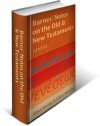
Genesis
- Authors: Albert Barnes and James Murphy
- Publisher: Eates and Lauriate
- Publication Date: 1873
- Pages: 540
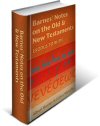
Exodus to Ruth
- Authors: Albert Barnes and James Murphy
- Publisher: John Murray
- Publication Date: 1879
- Pages: 480
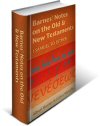
I Samuel to Esther
- Authors: Albert Barnes and James Murphy
- Publisher: John Murray
- Publication Date: 1879
- Pages: 510
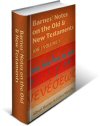
Job, Volume 1
- Authors: Albert Barnes and James Murphy
- Publisher: Blackie & Son
- Publication Date: 1847
- Pages: 384
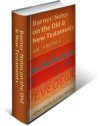
Job, Volume 2
- Authors: Albert Barnes and James Murphy
- Publisher: Blackie & Son
- Publication Date: 1847
- Pages: 339
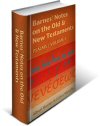
Psalms, Volume 1
- Authors: Albert Barnes and James Murphy
- Publisher: Blackie & Son
- Publication Date: 1870–1872
- Pages: 480
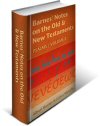
Psalms, Volume 2
- Authors: Albert Barnes and James Murphy
- Publisher: Blackie & Son
- Publication Date: 1870–1872
- Pages: 450
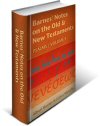
Psalms, Volume 3
- Authors: Albert Barnes and James Murphy
- Publisher: Blackie & Son
- Publication Date: 1870–1872
- Pages: 410
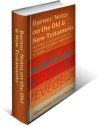
Proverbs, Ecclesiastes, Song of Solomon, Jeremiah, & Ezekiel
- Authors: Albert Barnes and James Murphy
- Publisher: John Murray
- Publication Date: 1879
- Pages: 423
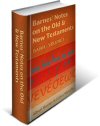
Isaiah, Volume 1
- Authors: Albert Barnes and James Murphy
- Publisher: Blackie & Son
- Publication Date: 1851
- Pages: 513
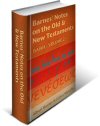
Isaiah, Volume 2
- Authors: Albert Barnes and James Murphy
- Publisher: Blackie & Son
- Publication Date: 1851
- Pages: 446
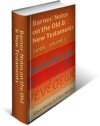
Daniel, Volume 1
- Authors: Albert Barnes and James Murphy
- Publisher: Blackie & Son
- Publication Date: 1853
- Pages: 336
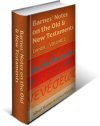
Daniel, Volume 2
- Authors: Albert Barnes and James Murphy
- Publisher: Blackie & Son
- Publication Date: 1853
- Pages: 310
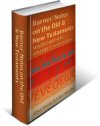
Minor Prophets, Volume 1: Hosea to Jonah
- Authors: Albert Barnes and James Murphy
- Publisher: Funk and Wagnalls
- Publication Date: 1885
- Pages: 427
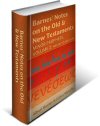
Minor Prophets, Volume 2: Micah to Malachi
- Authors: Albert Barnes and James Murphy
- Publisher: Funk and Wagnalls
- Publication Date: 1885
- Pages: 504
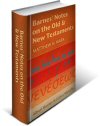
Matthew and Mark
- Authors: Albert Barnes and James Murphy
- Publisher: Blackie & Son
- Publication Date: 1884–1885
- Pages: 416
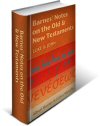
Luke and John
- Authors: Albert Barnes and James Murphy
- Publisher: Blackie & Son
- Publication Date: 1884–1885
- Pages: 415
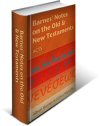
Acts
- Authors: Albert Barnes and James Murphy
- Publisher: Blackie & Son
- Publication Date: 1884–1885
- Pages: 400
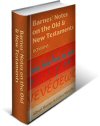
Romans
- Authors: Albert Barnes and James Murphy
- Publisher: Blackie & Son
- Publication Date: 1884–1885
- Pages: 344
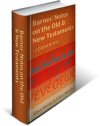
I Corinthians
- Authors: Albert Barnes and James Murphy
- Publisher: Blackie & Son
- Publication Date: 1884–1885
- Pages: 350
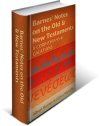
II Corinthians and Galatians
- Authors: Albert Barnes and James Murphy
- Publisher: Blackie & Son
- Publication Date: 1884–1885
- Pages: 400
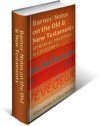
Ephesians, Philippians, Colossians
- Authors: Albert Barnes and James Murphy
- Publisher: Blackie & Son
- Publication Date: 1884–1885
- Pages: 288
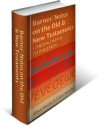
I Thessalonians to Philemon
- Authors: Albert Barnes and James Murphy
- Publisher: Blackie & Son
- Publication Date: 1884–1885
- Pages: 316
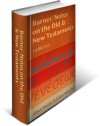
Hebrews
- Authors: Albert Barnes and James Murphy
- Publisher: Blackie & Son
- Publication Date: 1884–1885
- Pages: 328
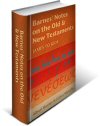
James to Jude
- Authors: Albert Barnes and James Murphy
- Publisher: Blackie & Son
- Publication Date: 1884–1885
- Pages: 406
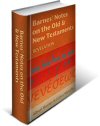
Revelation
- Authors: Albert Barnes and James Murphy
- Publisher: Blackie & Son
- Publication Date: 1884–1885
- Pages: 496
Albert Barnes graduated from Hamilton College, Clinton, New York, in 1820, and from Princeton Theological Seminary in 1823. Barnes was ordained as a Presbyterian minister by the presbytery of Elizabethtown, New Jersey, in 1825, and was the pastor of the Presbyterian Church in Morristown, New Jersey (1825–1830), and of the First Presbyterian Church of Philadelphia (1830–1867).
He held a prominent place in the New School branch of the Presbyterians during the Old School-New School Controversy, to which he adhered on the division of the denomination in 1837. In 1836, he had been tried (but not convicted) for heresy, mostly due to the views he expressed in Notes on Romans of the imputation of the sin of Adam, original sin and the atonement; the bitterness stirred up by this trial contributed towards widening the breach between the conservative and the progressive elements in the church. He was an eloquent preacher, but his reputation rests chiefly on his expository works, which are said to have had a larger circulation both in Europe and America than any others of their class. Of the well-known Notes on the New Testament, it is said that more than a million volumes had been issued by 1870. The Notes on Job, the Psalms, Isaiah and Daniel were also popularly distributed. The popularity of these works rested on how Barnes simplified Biblical criticism so that new developments in the field were made accessible to the general public.
Reviews
39 ratings
Natan Aioanei
2/13/2024
Rob Senn
1/30/2023
Caleb Black
2/11/2021

SEONGJAE YEO
10/5/2019
Mark Harrelson
11/28/2018

Tony M. Morris
9/26/2018


Kevin Bratcher
6/12/2018
Roberto Medina
3/23/2018

Wayne
3/2/2018